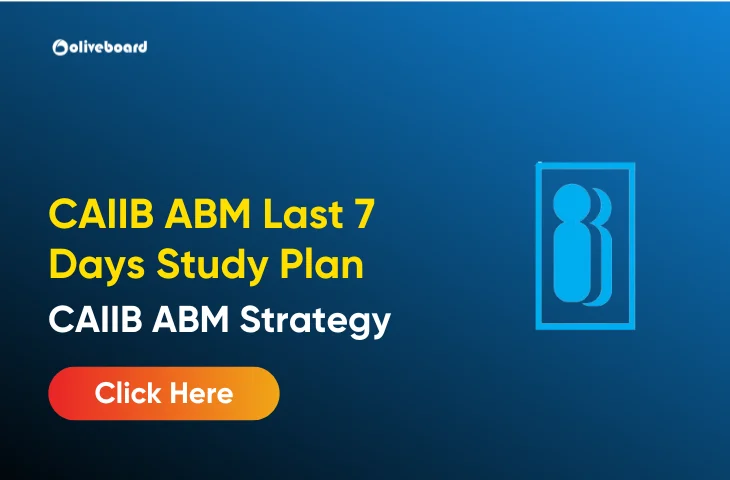CAIIB ABM Last 7 Days Study Plan: The CAIIB ABM (Advanced Bank Management) exam is a important milestone for banking professionals aiming to advance their careers. With the Nov-Dec 2024 exam approaching, it is essential to follow a structured and effective CAIIB ABM Study Plan to optimize your preparation during the final week. This article provides a detailed 7-day study plan, along with strategies, tips, and resources to help you ace the exam.
Why is a 7-Day Study Plan Important for CAIIB ABM
The last week before the exam can significantly impact your performance. A focused CAIIB ABM Study Plan ensures efficient time management, comprehensive revision of key topics, and confidence building through mock tests and practice.
CAIIB ABM Exam – Overview
Before going into the study plan, it is important to understand the CAIIB ABM syllabus and exam pattern.
CAIIB ABM Exam Pattern
The CAIIB ABM (Advanced Business Management) exam consists of 100 multiple-choice questions for a total of 100 marks. The exam duration is 2 hours, and there is no negative marking.
| Criteria | Details |
| Mode | Online |
| Total Questions | 100 |
| Marks | 100 |
| Duration | 2 hours |
| Negative Marking | No |
Download CAIIB Admit Card 2024 here, which has been issued by IIBF on its official website for CAIIB 2024 Nov-Dec cycle.
Topics in the CAIIB ABM Syllabus
The CAIIB ABM (Advanced Business Management) syllabus covers topics such as Economic Analysis, Business Mathematics, HR Management, Credit Management, and Treasury Management, providing a comprehensive understanding of advanced banking and business concepts.
- Economic Analysis
- Business Mathematics
- HR Management
- Credit Management
- Treasury Management
CAIIB ABM Last 7 Days Study Plan
Below is a day-wise breakdown of the CAIIB ABM Study Plan tailored for the final week.
Day 1: Focus on Economic Analysis
- Topics to Cover: National income, inflation, business cycles
- Tasks: Revise concepts and definitions, practice numerical questions related to GDP and inflation
- Resources: Notes, textbooks, and previous year papers
- Tip: Focus on case studies for application-based questions
Day 2: Dive into Business Mathematics
- Topics to Cover: Probability, time value of money, and annuities
- Tasks: Solve 15-20 numerical problems, review formulae and shortcuts
- Resources: Calculator, formula sheet, and mock tests
- Tip: Practice using the calculator efficiently
Day 3: Master HR Management
- Topics to Cover: Leadership styles, motivation theories, and performance appraisal
- Tasks: Focus on theoretical concepts and definitions, attempt 1-2 mock tests
- Resources: Study guides and e-books
- Tip: Highlight keywords to recall important points
Day 4: Strengthen Credit Management
- Topics to Cover: Loan syndication, risk assessment, and NPA management
- Tasks: Solve case studies on credit risk, memorize key regulatory guidelines
- Resources: RBI circulars, mock tests, and case studies
- Tip: Understand the practical application of policies
Day 5: Review Treasury Management
- Topics to Cover: Forex operations, derivatives, and risk management
- Tasks: Revise market terminologies and concepts, solve 2-3 practical scenarios on forex
- Resources: Online videos, study notes, and reference books
- Tip: Focus on real-world examples for better understanding
Day 6: Full-Length Mock Test and Analysis
- Attempt a full-length mock test under exam conditions
- Analyze your performance and identify weak areas
- Revise the topics where you scored low
Day 7: Quick Revision and Relaxation
- Revise formulae, charts, and key concepts from all subjects
- Focus on high-weightage topics
- Avoid starting any new topic
- Rest and maintain a positive mindset
Tips for CAIIB ABM Preparation
Preparing for the CAIIB ABM exam requires a focused approach, strategic use of study materials, and consistent practice to master key concepts and perform well.
- Focus on Key Topics: Concentrate on core areas like Economic Analysis, Business Mathematics, HR Management, Credit Management, and Treasury Management.
- Use Concise Study Materials: Rely on crisp, concise notes, such as notes, which cover the syllabus effectively in a short time.
- Understand Concepts, Don’t Memorize: Focus on understanding key concepts rather than rote memorization, as this will help in both theoretical and practical questions.
- Practice MCQs: Use MCQ books to practice and improve your answering speed and accuracy.
- Time Management: Allocate specific time to each topic and focus on quality over quantity to avoid feeling overwhelmed.
- Revise Regularly: Highlight and underline key points while reading, so that revision becomes quicker and easier before the exam.
- Solve Simple Numericals: Focus on the basic numericals, like simple interest, compound interest, and currency exchange rate calculations, as these carry enough weight for a good score.
- No Negative Marking Advantage: Since there is no negative marking, attempt all questions logically, making intelligent guesses where necessary.
- Make Use of Available Resources: Don’t hesitate to use PDFs and online resources, but ensure you have reliable study materials for a deeper understanding.
- Stay Calm and Confident: Last-minute preparation can still yield results with focused effort, so stay calm and manage your time effectively.
- Focus on Revision in the Last Days: Prioritize revision and focus on weak areas in the final days leading up to the exam.
Sample Day Wise Study Table
Here is a Sample Day Wise Study Table for CAIIB ABM preparation, designed to cover key topics efficiently:
| Day | Topic | Duration | Focus Area |
| Day 1 | Economic Analysis – Overview | 3 hours | Introduction to Economic Concepts, National Income, Inflation |
| Day 2 | Economic Analysis – Key Theories | 3 hours | Microeconomics, Demand & Supply, Market Equilibrium |
| Day 3 | Business Mathematics – Basics | 3 hours | Percentage, Simple Interest, Compound Interest |
| Day 4 | Business Mathematics – Advanced | 3 hours | Profit and Loss, Ratio, Time & Work |
| Day 5 | HR Management – Basics | 3 hours | HR Functions, Recruitment, Training and Development |
| Day 6 | HR Management – Advanced | 3 hours | Employee Motivation, Leadership Styles, Performance Appraisal |
| Day 7 | Credit Management – Basics | 3 hours | Types of Credit, Lending Policies, Risk Assessment |
| Day 8 | Credit Management – Advanced | 3 hours | Loan Recovery, NPAs, Credit Risk Management |
| Day 9 | Treasury Management – Overview | 3 hours | Treasury Functions, Risk Management, Asset Management |
| Day 10 | Treasury Management – Advanced | 3 hours | Treasury Operations, Foreign Exchange Management |
| Day 11 | Revision: Economic Analysis & Business Math | 4 hours | Review key concepts and solve practice questions |
| Day 12 | Revision: HR & Credit Management | 4 hours | Go through notes, revise important theories, practice questions |
| Day 13 | Revision: Treasury Management | 4 hours | Review formulas, solve case studies |
| Day 14 | Full Mock Test & Analysis | 4 hours | Practice a complete test, analyze strengths & weaknesses |
Note:
- Take regular breaks between study sessions (10-15 minutes) to stay refreshed.
- Focus on quality revision and practice during the final days leading up to the exam.
- Adjust the schedule based on your strengths and weaknesses.
CAIIB Syllabus Priority
The CAIIB syllabus priority is a important aspect for candidates preparing for the Certified Associate of Indian Institute of Bankers (CAIIB) exam. As the CAIIB exam plays a important role in the career advancement of banking professionals, understanding the syllabus and prioritizing the right topics is essential for efficient preparation.
Understanding the CAIIB Exam
The CAIIB exam is conducted by the Indian Institute of Banking and Finance (IIBF) for bank employees who want to enhance their professional knowledge and skills. The exam is divided into three papers:
- Paper 1: Advanced Bank Management (ABM)
- Paper 2: Bank Financial Management (BFM)
- Paper 3: Corporate Banking (CB) or Rural Banking (RB)
Each paper has a unique syllabus, and knowing which topics to prioritize can make all the difference in your exam performance.
CAIIB Syllabus Detailed
Let’s take a look at the syllabus of each paper and identify the topics you should focus on for effective preparation.
Paper 1: Advanced Bank Management (ABM)
Key Areas to Prioritize:
- Principles of Management: Focus on leadership, decision-making processes, and management functions.
- Financial Analysis: Study techniques for assessing financial health and understanding financial statements.
- Risk Management: Learn the fundamentals of risk management, including credit, market, and operational risks.
- Banking Technology: Focus on the impact of technology on the banking sector and the importance of cybersecurity.
- Corporate Governance: Prioritize topics related to corporate governance, including regulatory frameworks and ethical standards in banking.
Important Topics to Cover:
- Strategic Management
- Organizational Behavior
- Marketing in Banks
- Financial and Risk Management
- Technology and Digital Banking
Paper 2: Bank Financial Management (BFM)
Key Areas to Prioritize:
- Financial Statements: Master the preparation and analysis of balance sheets, income statements, and cash flow statements.
- Financial Markets: Learn about money markets, capital markets, and their role in financial management.
- Cost of Capital: Understand the different sources of capital and their cost implications for banks.
- Profit Planning and Control: Focus on how banks plan and control profits, including budgeting and forecasting.
Important Topics to Cover:
- Accounting and Financial Statements
- Financial Planning and Analysis
- Banking Regulations
- Capital Markets and Instruments
- Risk Management in Banks
Paper 3: Corporate Banking (CB) or Rural Banking (RB)
Key Areas to Prioritize:
- Corporate Banking (CB): Learn about the different types of corporate lending, credit appraisal, and working capital management.
- Rural Banking (RB): Focus on topics related to financial inclusion, government schemes for rural development, and agricultural finance.
Important Topics to Cover:
- Corporate Lending and Loan Assessment
- Credit Risk Management
- Agricultural Finance and Rural Development
- Government Schemes for Rural Areas
- Microfinance and Financial Inclusion
CAIIB Syllabus Priority – A Strategy for Success
To maximize your chances of success in the CAIIB exam, it is crucial to prioritize topics based on their importance and the weightage they carry in the exam. Here’s a strategy for prioritizing the CAIIB syllabus priority effectively:
1. Analyze Previous Year Question Papers
One of the best ways to understand which topics hold the most weight in the exam is to analyze the previous year’s question papers. This will help you identify recurring topics and patterns. Prioritize these topics to ensure that you’re focusing on areas that have a higher likelihood of being tested.
2. Focus on Conceptual Clarity
Rather than just memorizing facts, focus on understanding the concepts in depth. This approach will help you solve complex problems and manage time effectively during the exam. For instance, in Advanced Bank Management, understanding how risk management works in real-world scenarios is more important than merely remembering theoretical definitions.
3. Practice with Mock Tests
Taking mock tests is essential to get an idea of your current preparation level. It will also help you assess how well you manage time during the actual exam. Practice solving mock tests regularly and analyze your performance to pinpoint areas where you need to improve.
4. Allocate Time Wisely
Create a study plan that allocates sufficient time to each subject based on its difficulty level and importance. Ensure that you are spending more time on topics that are more likely to appear in the exam.
5. Stay Updated with Current Affairs
For subjects like Risk Management and Banking Technology, staying updated with the latest industry trends and regulations is crucial. Make sure you are aware of new policies, banking technologies, and the economic environment.
Tips for Effective CAIIB Exam Preparation
Here are some practical tips to help you focus on your CAIIB syllabus priority:
- Create a Study Plan: Divide your study time into focused sessions for each paper. Set weekly goals to ensure that all topics are covered well in advance.
- Use Quality Study Material: Invest in high-quality CAIIB study material, including reference books, online resources, and video lectures. It will help you understand the topics better.
- Revise Regularly: Make time for revision at regular intervals. This will help consolidate your learning and keep the concepts fresh in your mind.
- Join a Study Group: If possible, join a CAIIB study group or online forum where you can share knowledge and clarify doubts with peers.
CAIIB Syllabus Priority: Table of Recommended Topics
To further simplify your preparation, here is a table summarizing the CAIIB syllabus priority for each paper:
| Paper | Priority Topics |
| Advanced Bank Management (ABM) | Principles of Management, Risk Management, Technology |
| Bank Financial Management (BFM) | Financial Statements, Financial Markets, Profit Planning |
| Corporate Banking (CB) | Corporate Lending, Credit Risk, Loan Appraisal |
| Rural Banking (RB) | Agricultural Finance, Financial Inclusion, Govt. Schemes |
Conclusion
Preparing for the CAIIB ABM exam in the last 7 days requires a focused and disciplined approach. This CAIIB ABM Study Plan helps you maximize your preparation by emphasizing key topics, efficient revision, and strategic practice. Confidence and a clear strategy are your best allies in acing the CAIIB ABM exam. Prepare well, stay positive, and give your best shot! Good luck for CAIIB Nov-Dec 2024
CAIIB ABM Last 7 Days Study Plan – FAQs
A. Focus on revising key concepts, practicing mock tests, and reviewing important topics like risk management and financial analysis.
A. Prioritize high-weightage topics, revise notes, and solve previous years’ papers for quick recall.
A. It is better to avoid learning new topics, focus on revision and strengthening areas you’re already familiar with.
A. Allocate more time to weak areas and spend about 5-6 hours per day for focused revision of all subjects.
- CAIIB Study Material, Best Study Resources for CAIIB
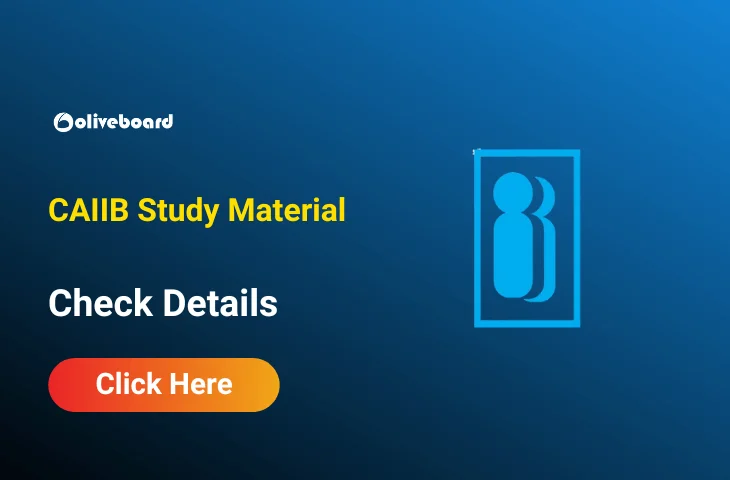
- 5 Golden Tips CAIIB July 2026 in 1st Attempt, CAIIB Exam Preparation

- How to Start Preparation for CAIIB Exam 2026, Best Tips and Tricks
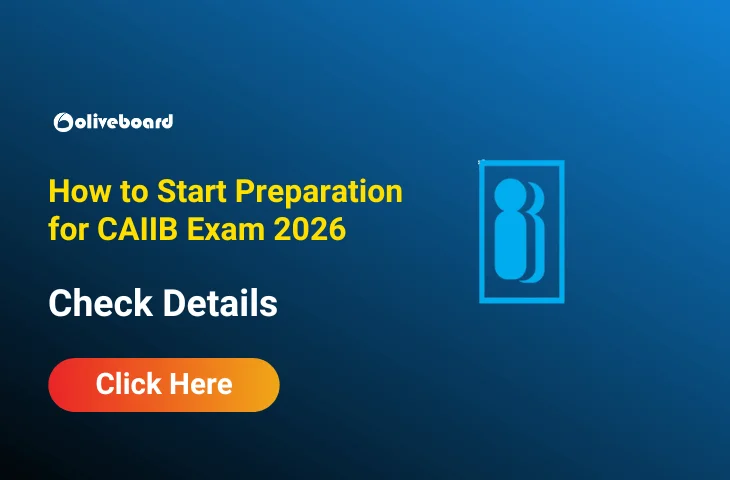
- How to Crack CAIIB 2026 in 1st Attempt, Check Strategy
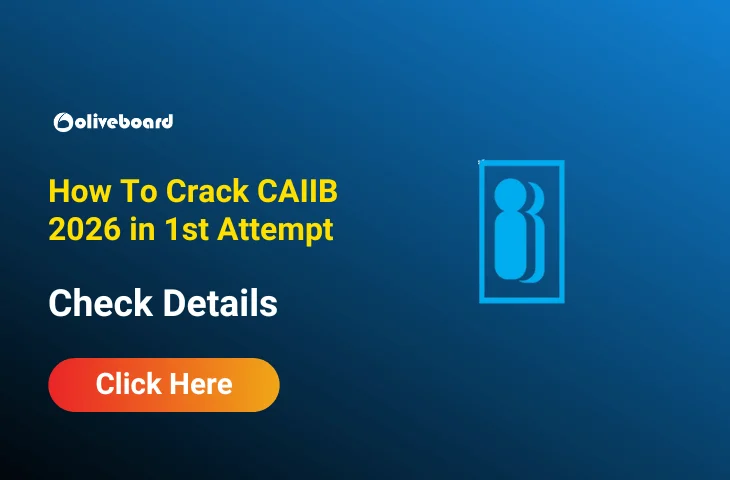
- CAIIB BRBL Questions with Detailed Solutions and Answers
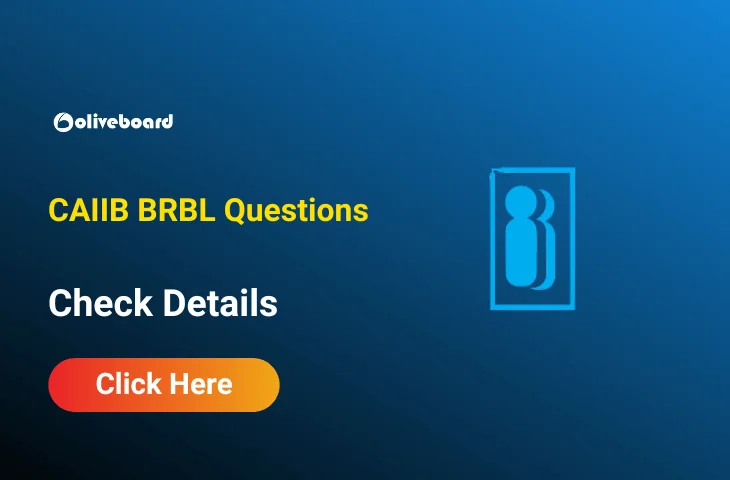
- CAIIB Previous Year Question Paper, Download Free PDF


Hello there! I’m a dedicated Government Job aspirant turned passionate writer & content marketer. My blogs are a one-stop destination for accurate and comprehensive information on exams like Regulatory Bodies, Banking, SSC, State PSCs, and more. I’m on a mission to provide you with all the details you need, conveniently in one place. When I’m not writing and marketing, you’ll find me happily experimenting in the kitchen, cooking up delightful treats. Join me on this journey of knowledge and flavors!
